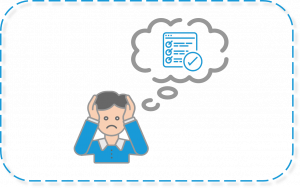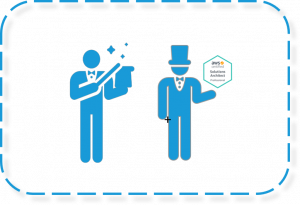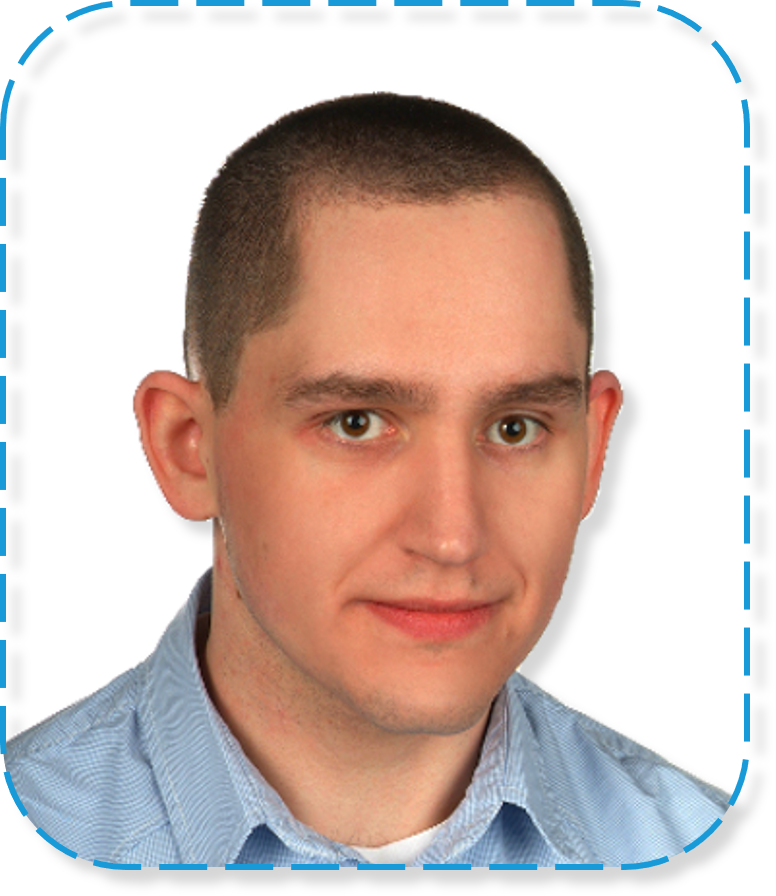Tomasz Skibiński “The Professionalist” - the road to the elites of AWS part. II
We publish the second part of the interview with Tomek, announced earlier, in which we will talk about AWS certifications. This is one of the most interesting topics, especially when we have the opportunity to talk to a “veteran” certification at the Professional level. We also encourage you to read the first part of the interview, to which you will find a link here.
 Hi Tomek! Previously, we talked about how you came to the company and how your adventure with cloud computing began. It’s nice that you took the time for another conversation, this time regarding certification.
Hi Tomek! Previously, we talked about how you came to the company and how your adventure with cloud computing began. It’s nice that you took the time for another conversation, this time regarding certification.
Hey! Yes, I am also pleased that I can share my experience.
So, you work with the AWS cloud every day. In order to maintain a high level of quality and reliability of services offered by LCloud, the team of engineers is gaining more and more AWS certifications. AWS divided them into those regarding the role, among which we have: SysOps, Developer and Solutions Architect at the Associate level, DevOps and Solutions Architect at the Professional level. In addition, the division deals with specialities for Big Data, Security, Advanced Networking, Machine Learning and Alexa Skills Builder. There is also a Cloud Practitioner certificate, which is dedicated to those working with the AWS cloud more on the process, project and business level. How did it look like when you started your certification journey? You immediately knew what certificates you want or do you have to do?
In the beginning, Jacek mentioned to me about the AWS certificates which were available at that time. They are needed to certify knowledge of the services from the AWS console. They are also needed for the company to obtain the status of a partner at the appropriate level. We have 3 levels of partnership: Select, Advanced and Premier. LCloud is a 2nd level partner – Advanced. Returning to the certificates, Jacek noticed that I have potential and should not go in the direction of SysOps, but in the DevOps direction.
What was your first certificate and how much preparation you took?
The first was the Developer Associate certificate. I planned to take the exam in October 2015, but we did not organize any meetings in Warsaw at that time (we work remotely). And it so happened that it was only at the beginning of January 2016 that the AWS User Group meeting, organized in Warsaw, took place – so I came and obtained this certificate. So it can be said that the preparations took me a little over a year, and the main element of my training was everyday work with AWS services.
And how have you prepared – what have you read, what have you tested operationally, where did you get the knowledge?
I always start by collecting basic information about the service so that I know what it is for. Then I go through to read the full documentation of the service, at the same time avoiding the white paper, because they do not usually contain the full functionality of the service and what needs to and can be done with it. In the meantime, I go to the AWS console and try to test the service out, wondering what I can do with it at the same time.
And you do all this on the AWS website? Are you looking for any additional sources of information?
Yes – on the AWS website. I’m not looking for other sources – if we’re talking about new services. If an older service comes into play, which I have not dealt with yet, and now I have come to know it in detail, then I am looking for other solutions. I use, for example, A Cloud Guru training – where someone will tell me something about it. Thanks to this, I can start working with a new service faster. Of course, watching video training does not preclude that later, that I will sit down and read the documentation. I have to make all the points from my checklist (laughs).
 When new services appear – do you sit, read and wonder what use the service in a particular solution can have? How will it work? What will be the benefits?
When new services appear – do you sit, read and wonder what use the service in a particular solution can have? How will it work? What will be the benefits?
Immediately when I see a new service with which I can get my hands on, I put in my mind a list of potential ways to use it. How can I get to know it better, where and how I can use it, and where I can start it and what it can give me, which allows for more effective use of AWS.
We already know how to prepare for certification, and what does the exam look like? What is its formula – the amount of questions, some division into modules? What is the level of difficulty of the questions?
During the exam, the room is closed, and the exam itself is recorded. You have access to the platform and the whole thing lasted 80 minutes (at that time). All AWS exams are in the form of test questions and multiple choice answers. I had 60 questions on the Developer. The difference between the level of Associate and Professional is that in Professional all or most of the answers are correct, and your task is to choose the most appropriate one. In the case of Associate, in my opinion, the answers are likely for an inexperienced user of AWS services, but if someone has already worked with them, he or she is sure which are correct.
And as it is with the result – you get it right away or after some time?
Yes, the result is usually displayed at the end of the exam. AWS uses the system on the basis of which the threshold for the examinee is dynamically calculated. It is assumed that it is about 65-70%. The test taker receives his / her exact percentage, broken down into individual categories, which are highlighted in the blueprint of the given certificate. So there is no such thing as a well-defined pass rate, and Amazon either passes the exam or does not. I had 4 modules on the Developer and I got 87%.
What advice do you have for the starting CloudOps who plan to certify?
For my part, I would recommend going through some training, video training, which is provided by A Cloud Guru. Because of this, it will give them some idea of the scope of content that is on the given exam. The lecturers communicate knowledge in an accessible way, with an indication of what is most important in relation to the exam.
 And something at the training stage? Any tricks? Is there a shortcut, Tomek?
And something at the training stage? Any tricks? Is there a shortcut, Tomek?
I do not know, I don’t use the shortcuts (laughs). I am not an advocate of shortcuts. I know that if someone passes this way, sooner or later this path may be painfully verified in a smaller or larger way.
Finally, a question related to the time-consuming nature of the entire undertaking. Tell us please, how is it? What is the matter of time that needs to be spent on learning??
I did not have any set plan. But I tried to devote 1-2 hours a day, to read documentation or experiment in the console. Sometimes I’ve been solving some tests. It’s worth using Cloud Academy or A Cloud Guru platforms. At Cloud Academy, they have over 300 questions from specific certification. I can say that I have devoted up to 90 hours for the preparation of one certification in the perspective of five, maybe six months.
Thank you for devoting your valuable time to sharing your experience with us.
Thank you and good luck to everyone planning AWS certification.

Interview with Tomek Skibiński – Head of Devops Innovations at LCloud, an enthusiast of cloud computing and open-source technology. Every day he specializes in building and implementing new solutions, also in automation of infrastructure and applications based on the AWS cloud. As an experienced Solution Architect and DevOps he shows how to take full advantage of the opportunities that the cloud brings. As one of the few in Poland, it has passed almost all AWS certification paths.

